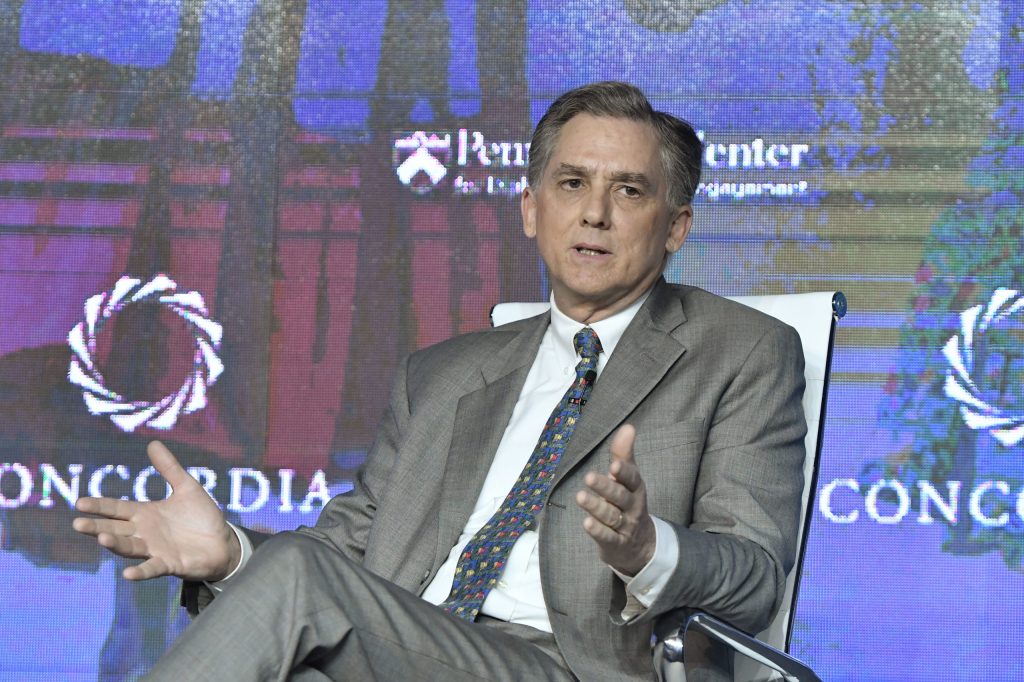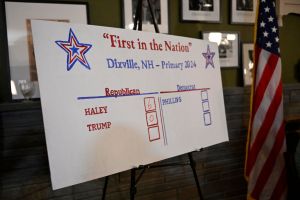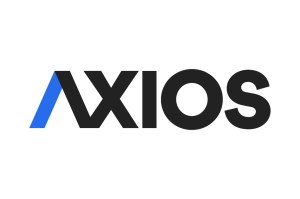Rep. French Hill is on board with President Trump’s threat to withhold funding from the World Health Organization because of its collusion with China’s initial coverup of the seriousness of the novel coronavirus.
‘I support the president’s indication,’ the Arkansas congressman told The Spectator during a Thursday phone interview. ‘I think it sends a message to the world that these global, multinational, multilateral organizations tend to be inadequately accountable to those who fund them.’
‘I would urge our committees of jurisdiction in the House and Senate to conduct a full oversight on America’s contribution to the WHO and what the World Health Organization did or did not do vis-a-vis this particular pandemic crisis,’ Hill asserted.
Republicans have been blasting WHO for its perceived fealty to China. The WHO has been advancing Beijing’s claims that it has been transparent about its case numbers and supporting the idea that criticism of the Chinese government is racist. The WHO was in no small part responsible for spreading early misinformation. It claimed in a tweet in mid-January that the coronavirus could not be transmitted between humans and later denied the importance of widespread travel bans in combatting the spread.
‘On January 14, we have the shocking World Health Organization tweet that says that the disease is not communicable and that it’s limited to the Wuhan province in China and people shouldn’t overreact,’ Hill recalled. ‘I don’t think they played straight with the world.’
China apologists latched on to a New York Times report this week indicating that most coronavirus cases in New York came from Europe, not China, as proof that the ire at Beijing is misplaced. Hill argued that the origin of the cases in the US is irrelevant as to whether China misdirected the world during the initial outbreak.
‘I don’t think China was forthcoming or helpful early enough. I think the documentation on that is quite clear, irrespective of where each first case in each country came from. We’ve had almost half a million people travel back to the United States from China since the first of the year,’ he said.
Hill, who sits on the House Financial Services Committee, also spoke about the domestic response to COVID-19, including efforts in Congress to curb medical supply chain reliance on China. Last week, Hill introduced the SAVE Act, which would amend the Defense Production Act to classify medical supply chains as national security items. The act also directs the president to secure medical and pharmaceutical supply chains in case of times of emergency when a national response is needed to ensure adequate supply.
‘I think America was caught off guard in this pandemic, despite years of planning,’ he argued. ‘We just have found that our supply chain for both critical pharmaceutical ingredients and medical supplies, including medical devices — too much of it is offshore and in too few hands.’
In terms of weathering the economic storm caused by the pandemic and eventually getting Americans back to work, Hill said he was ‘disappointed’ that Democrats blocked Senate Majority Leader Mitch McConnell’s attempt Thursday to approve $250 billion more for the Paycheck Protection Program (PPP). The PPP provides loans to small business owners so they can continue to employ workers throughout the pandemic. Democrats said they would not support the additional funding until they can tack on funding for hospitals as well as increased protections for women and minority-owned businesses.
Hill said, ‘I was disappointed that we couldn’t get quick consensus to have 250 billion additional money committed to the PPP program. I’ve spent the last 10 days working on the PPP program in detail and I think the request from the Treasury was warranted. I don’t think it should be have anything added onto it. We should keep it straightforward.’


















